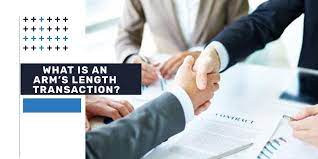Your budget comprises both fixed and variable expenses. Fixed expenses are the polar opposite of variable expenses. A recurring variable expense is one that occurs from month to month. However, the amount you pay each month may fluctuate from past payments or payments you’ll make in the future. Either way, it’s vital that you not only have a budget but that you actually make an attempt to stick to it. This implies that you go beyond simply establishing your budget and actually stick to the spending guidelines you’ve established. Knowing the examples of fixed expenses and variable expenses is important too.
We’re going to walk you through everything you need to know about managing your money with fixed expenses and variable expenses.
Ready? Let’s dive in.
Variable Expenses
Variable expenses fluctuate on a regular basis and can be directly influenced by the decisions you make on a daily basis. They are not considered variable because the expenditures are discretionary, They’re called “variable” because the amount you spend varies from monthly. Variable expenses, in contrast to fixed expenses, can be less predictable and fluctuating. That isn’t to mean that they aren’t required; many necessities come into this category. A recurring variable expense is one that occurs from month to month. However, the amount you pay each month may fluctuate from past payments or payments you’ll make in the future.
Budgeting for variable expenses is more difficult because you may not be able to predict how much they’ll add up from month to month. If you don’t keep track of your variable expenses on a regular basis, it’s easy to underestimate or overestimate how much of your budget you should set aside for them. Some households fail to track and budget for variable expenses due to their unpredictability. However, you may simply do this with a budgeting tool, which can reduce the chances of variable expenses deviating from your spending plan.
Essential and discretionary expenditures are both examples of variable expenses.
Saving on Variable Expenses
When consumers need to save money, variable costs are often the first thing they try to minimize. Unfortunately, variable expenditures are among the most difficult to eliminate since they necessitate a daily commitment to efficient choice.
Reducing variable costs necessitates making various decisions every day about whether or not to purchase certain goods or attend certain occasions. Knowing the examples of variable expenses is a bonus too. The following ways will help and guide you on how on save on fixed expenses. They are;
#1. Shop at discount stores
You don’t have to spend your entire income at a high-end supermarket, to feed well. Go to a store with discount prices whenever you want to shop.
#2. Pack your lunch
Packing your lunch rather than eating out allows you to save more of your money.
#3. Cut those coupons
Coupons may be your best friend when it comes to saving money on things like school supplies, new clothes, and even food. However, just because you have a coupon on something does not imply you should buy it. Saving money by spending it is the complete opposite of saving money.
#4. Brew your own coffee
Instead of wasting money at the coffee shop, make your own coffee at home and keep the coffee shop for rare times.
How to Budget for Variable Expenses
It’s critical to think about the month as a whole while putting together that zero-based budget we discussed before.
Sure, the unexpected can happen, but when it comes to planning for variables, the goal is to make the best-educated assumption you can. If you keep track of your costs throughout the month, you might discover that you have some money left over from that canceled dinner engagement. That money can come in handy if something unexpected happens that you didn’t plan for.
Reducing Variable Expenses
It’s more difficult to cut variable expenses than it is to cut discretionary spending. Choosing not to purchase a more expensive pair of shoes is an example of discretionary spending reduction. It’s just a decision that’s a lot easier than selecting how to reduce your grocery expenditure, which is an essential but variable expense because you’d have to adhere to those reductions monthly.
You may discover where (and for what reasons) your variable expenses increase by first setting your budget goals and then monitoring them. Then you can make important choices about how to spend your money and where to save money.
Variable Expenses Examples
What goes into a budget under variable expenses varies from person to person. It is important for you to know the examples of variable expenses so as to keep you on alert!
The following are examples of variable expenses;
- Gasoline
- Parking fees
- Groceries
- Clothing
- Personal care expenses
- Medical bills
- Home maintenance and repairs
- Entertainment
- Hobbies and recreation
Some unpredictable charges aren’t guaranteed to happen again.
Although the amount you spend varies from time to time, you are not paying for those charges on a monthly basis. Instead, use sinking funds, money set aside for this purpose to budget for these types of variable expenses.
Fixed Expenses
A fixed item in your budget is one that you can expect to be the same, or very close to, throughout time. You don’t have to predict how much you’ll pay toward fixed expenses while making your monthly budget. You can just carry such sums over from the previous month’s budget. Budgeting for fixed expenses is significantly easier than budgeting for variable expenses.
Fixed expenses are paid at regular times and may vary somewhat, alter dramatically, or remain the same. Fixed expenses might occur weekly, quarterly, twice a year, and yearly, in addition to monthly. Knowing when your expenses are due can aid in budgeting.
Fixed expenses include your health insurance, car insurance, life insurance, and homeowners or renters insurance. To adjust these monthly payment amounts, you’d have to spend several hours studying alternative options.
Saving on Fixed Expenses
The money you save in this category might be significant because fixed expenses account for the majority of your budget.
Saving money on fixed costs comes with a bonus: you won’t feel like you’re limiting your lifestyle.
You should incorporate economical selections into your monthly budget once you’ve discovered these low-cost solutions. In other words, cutting your fixed monthly payments won’t help you feel cheap because most people don’t consider their fixed monthly expenses. Knowing the examples of fixed expenses is a bonus too. The following ways will help and guide you on how on save on fixed expenses. They are;
#1. Pay Upfront and Save
Don’t undervalue the power of money. Whether it’s for your car or your home, spending a large sum of money upfront can often save you money.
#2. Shop Around
Always compare prices. Even if you’ve had your insurance with the same carrier for years, that doesn’t mean you’re getting the greatest bargain; you could be overpaying or even overinsured.
#3. Cancel Any Unused Subscriptions
An app here, a streaming service there. With so many memberships and subscriptions around, it’s simple to sign up for something and then forget about it. Make a list of the ones you use and get rid of the others. Saving is made immediately with that.
#4. Negotiate
Everything is open to discussion. Yes, even fixed costs like rent or internet connection. You never know, maybe painting the trim on your rental would entice your landlord to shave a few hundred dollars off your rent. Remember, it never hurts to inquire.
How to Budget for Fixed Expenses
when your earnings minus your outgoings equal zero That doesn’t mean you have no money in your bank account, it simply means you’ve accounted for every dollar of your income and directed it to the appropriate location.
The fixed costs that occur month after month are included in that zero-based budget. Each of those bills will have its own budget line.
Tracking your expenses is crucial to budgeting success. When it comes time to pay the bill, make sure that fixed costs don’t change.
Fixed Expenses Examples
Essential monthly expenses, such as those required to sustain a basic level of life, are examples of fixed expenses. It is important for you to know the examples of fixed expenses so as to keep you on alert!
The following are examples of fixed expenses;
- Rent or mortgage payments
- Renter’s insurance or homeowner’s insurance
- Cell phone service
- Internet service
- Health, disability, or life insurance premiums
- Property taxes
- Childcare costs
- Tuition fees
If your budget for it on a regular basis, saving can be regarded as a fixed expense. Every payday, for example, you may deposit $100 into your emergency fund. If you do it on a regular basis and include it as a line item in your budget, you can consider it a fixed expense if you stick to your savings routine.
How to Budget for Fixed and Variable Expenses
A costly budgeting mistake is failing to prepare for both fixed and variable expenses, or not budgeting the appropriate amounts for both. If you have both sorts of monthly expenses, the following suggestions can help you budget for them:
#1. Track Variable Spending
You may be setting yourself up for budgeting failure if you don’t keep track of how much you spend on variable expenses. Monitoring your variable expenditure can help you identify how particular expense categories in your budget change over time, making it easier to know the amount of money you need to set aside for them.
#2. Know Your Baseline
If you lose your job in the labor force, having a baseline budget can be beneficial. This is the minimal minimum you’d need to make ends meet each month. Keeping that figure in mind might assist you in determining how much of your budget you can devote to optional variable expenses.
#3. Budget for essentials first
The majority of the time, your fixed expenses are also your most significant ones: rent, insurance, and childcare costs. So it’s only natural that when you’re dividing up your monthly money, you give those bills special emphasis above expenditures.
Savings and Expenses
You may not have considered savings as a regular expenditure, but you should! Your goal should be to set aside 20% of your earnings for the future. These funds can be put into an emergency fund, invested for retirement, or utilized to get a head start on saving for a down payment on your first property.
Which Should You Budget for First, Fixed, or Variable Expenses?
Budget fixed expenses first because they make up a large portion of your budget and are usually established for longer durations. Because your variable expenses change on a monthly basis and are easy to manage on the fly, it’s easier to schedule them around your fixed expenses.
Which Should You Budget for First, Fixed or Variable Expenses?
First, you should create a budget for your fixed expenses because they account for the majority of your overall spending and are typically established for more extended periods of time. Your variable expenses change on a monthly basis and are simple to adapt as you go, which means that it is simpler to schedule these expenses around your fixed expenses.
Is a Cell Phone a Fixed Expense?
A mobile phone is considered a fixed expense because it is paid on a monthly basis and the cost is relatively consistent from one month to the next. Despite this, you can take steps to reduce the cost of your cell phone to ensure that this consistent expenditure is manageable within your financial plan.
Is It Better to Budget for Fixed or Variable Expenses First?
It is possible that it will be simpler to create a budget for your fixed expenses first because you already know how much these expenses will cost. However, it is more crucial to make sure that you are budgeting for necessary expenses, which may contain both fixed and variable costs.
Because there is no one best approach to budget for variable spending, you will need to develop a strategy that works for you. There is no one best way to budget for fixed expenses. Because you have an allotted sum of money to spend on each expense, using the envelope approach could make it easier for you to avoid overspending on variable costs. You may, on the other hand, use a budget called “pay yourself first” to emphasize savings, or you could use a budget called “zero-based” to ensure that your money is going toward a variety of purposes.
What Are Some Examples of Variable Costs?
The cost of products sold (also known as COGS), the cost of raw materials and other inputs to production, the cost of packaging, wages and commissions, and certain utility prices are all examples of variable costs (for example, electricity or gas that increases with production capacity).
How Do Fixed Costs Differ From Variable Costs?
Fixed costs are those that do not change regardless of the volume of production, in contrast to variable costs, which are those that are directly tied to the cost of producing goods or services. The term “cost of goods sold” (COGS) is most generally applied to variable costs, whereas fixed costs are not typically included in COGS. When elements like sales commissions are factored into per-unit manufacturing costs, fluctuations in sales and production levels have the potential to have an impact on variable costs. On the other hand, even if production is drastically slowed down, fixed costs still need to be paid.
How Can Variable Costs Impact Growth and Profitability?
When businesses boost their output in order to satisfy customer demand, the variable expenses of their operations go higher. If these costs increase at a rate that is greater than the revenues obtained from new units produced, it is possible that expanding the business might not be financially beneficial. A business that finds itself in this situation will need to investigate the reasons behind its inability to obtain economies of scale. In the theory of economies of scale, the proportion of a product’s variable expenses to its total cost per unit falls as the scale of its production increases.
Is Marginal Cost the Same As Variable Cost?
No. The term “marginal cost” describes the amount of money required to create one additional unit. When determining the marginal cost, the entire cost of production, which includes both fixed and variable expenses, will be taken into account. However, given that fixed costs are always the same, the relative importance of fixed costs will decrease as production increases.
What Is the Formula for Total Variable Cost?
Because variable costs scale alongside production, every unit of output will theoretically have the same amount of variable costs. This is because variable costs scale alongside output. Therefore, in order to compute total variable costs, simply multiply the total quantity of output by the unit variable cost.
FAQs
What are periodic fixed expenses?
Costs that are the same and repeat on a regular basis but do not occur every month are referred to as periodic expenses (e.g quarterly). They necessitate planning ahead and budgeting in order to pay such bills when they become due.
Why is it usually best to plan variable expenses after planning for fixed expenses?
Fixed expenses must be planned more precisely than variable spending since they are known entities. You’ll know how much money you have leftover for the spending period once you’ve budgeted for fixed expenses. If you have money left over, you can spend more freely on variable expenses, and vice versa if fixed expenses take up a larger portion of your budget.
What are variable expenses in a budget?
Expenses that change over time, such as groceries or movie tickets, are known as variable expenses. It’s difficult to predict how much you’ll spend because these expenses might change dramatically over the course of a week, month, or year. These prices may change from week to week, monthly, or yearly.






